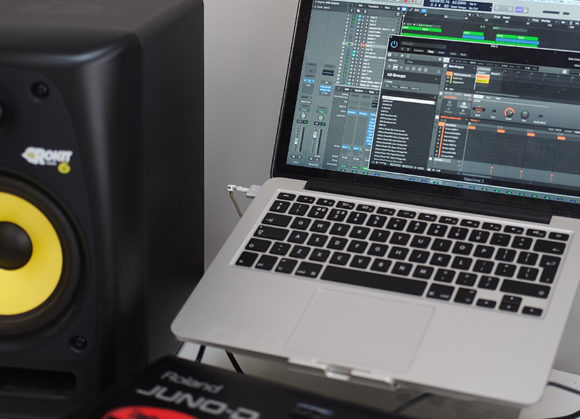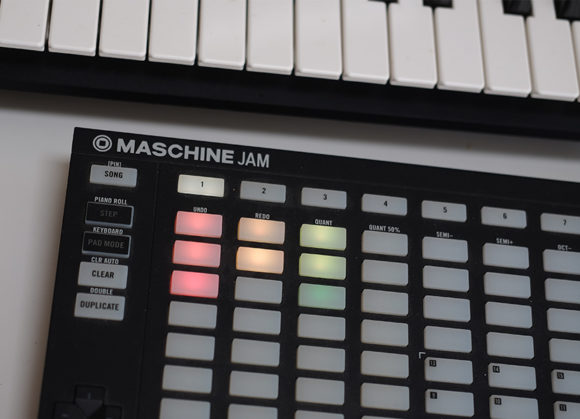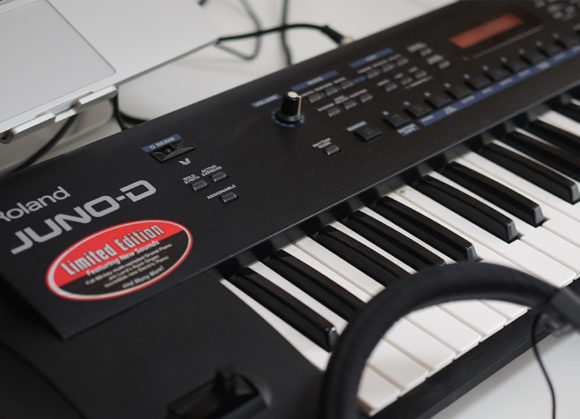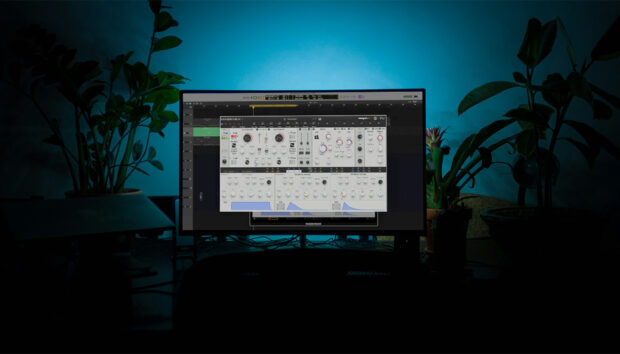“I’m not one of those people that sits down and makes music every day,” says Miles Mitchell of the decision to call his latest album Lazy. “I make music in little bursts, when I find the time or have the creativity.” But an outside observer could hardly accuse the veteran producer, Gobstopper records boss and Boxed night co-founder of slacking. “When you look at it from a different angle, you’re like, “I’m doing this and running the label and running a club night and looking after three kids and doing a full time job. So I’m definitely not lazy.”
The lesson here is crucial to understanding Mitchell’s music as Mr. Mitch. Namely: there’s a big difference between not doing enough, and not doing too much. Emerging out of London’s grime scene more than a decade ago, Mitchell’s music has become gradually more pared-back, even as its stylistic frame has broadened. Whether doing tender pop, club-ready dancehall, or leftfield house, he brings a light, minimalistic touch to his productions. All the essentials are there, with none of the excess fuss.
He traces this approach back to his Peace Dubs: spare edits of well-worn classics – inverting grime’s “war dubs” concept – which he has released sporadically since 2013. “All of this stems from when I was experimenting with the Peace edits. Breaking down some tracks and taking them to their core elements made me realize that a lot of these elements aren’t needed.”
Now, his music-making follows a two stage process. First, give in to the DAW-fuelled temptation to layer and multiply material: “add all of those layers, all these different elements, different melodies that work with each other.” Then, take them away. “If you look at my projects, the page will look quite full. There’s loads of tracks, but a lot of them are muted. There’s just a few bits that I’ve kept that I need.”

When deciding what to cut away, Mitchell listens to his inner creative voice rather than blindly following convention. “A lot of the time you know when it’s right. It’s something else telling you that you need to add more – it’s other people telling you, ‘This isn’t a real track if you haven’t done this and if you haven’t added this.’ I think if you feel like the track is done, it probably is done.”
The results leave acres of clear space in the mix – and teasing hints of sounds un-played. “A lot of the time, when you take elements away, they feel like they’re still there. They’re these kind of ghost notes that, I don’t know if anyone else can hear, but I can hear. Their presence is still there somehow.”
Mr. Mitch’s minimalist approach reaches its pinnacle on the title track of Lazy. Mitchell started with the track’s sour, jazzy chord progression. Having come up with the notes in his DAW of choice, Logic, he ran them through his rack-format Prophet ‘08 polysynth. The chords “sounded so good that I didn’t feel like it needed anything else.” Some deft on-the-fly tweaks to filter cutoff and amplitude envelope keep the interest up, but plenty of space is left for vocalist Manga Saint Hilare. Here too, Mitchell’s less-is-more approach was key to the vocal’s simple, unadorned sound.
“With grime MCs there’s a typical thing of, you have to record all the doubles, all the ad libs, all the different stacks. I feel like a lot of MC projects that I listen to, they lose the natural energy and cadence in the songs from over-layering and trying to make it sound fuller. I’ve always been a fan of just a single vocal on a track. Especially a track as minimal as “Lazy”, it didn’t really need layers and layers of vocals.”
Lazy is marked by collaborations, whether with Saint Hilare, pianist-composer Duval Timothy, or producer Social State. When working with others, Mitchell used the Maschine Jam to inject spontaneity into his production process. In particular, the Note Repeat feature, and fluid pitch changes using the sliders, helped give expression to his percussion. The Jam’s quick and intuitive step sequencer, meanwhile, reminded him of FL Studio, the DAW he used before switching to Logic.
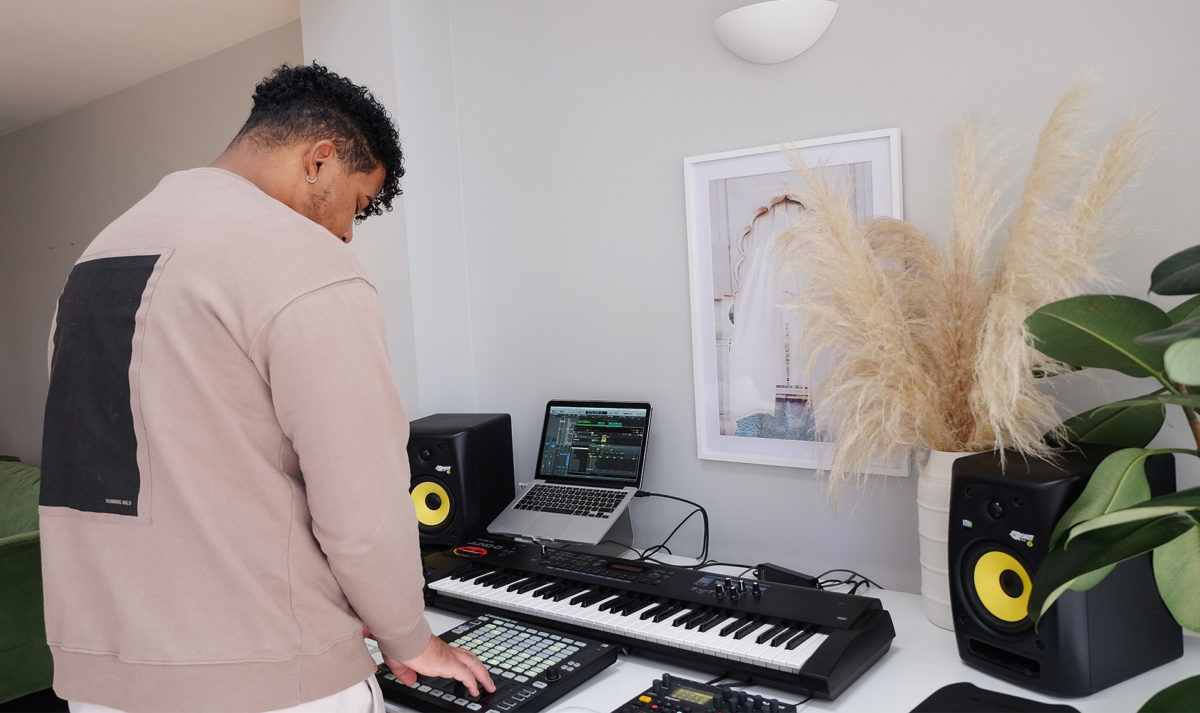
“The FL Studio step sequencer was really intuitive for making drums. Moving to Logic, everything is a bit drag and drop, and I find it a lot harder to make drums with a lot of energy. So using the Maschine Jam, having the step sequencer again, having easy access to loads of different samples, and layering and processing them in different ways – it made making drum loops when I’m collaborating really quick and easy.”
Alongside Omnisphere, and a stack of sample packs acquired in his youth, Maschine’s drum library forms a core part of Mitchell’s production toolkit. After years spent amassing digital production tools, he began to strip things back; many of his recent tracks feature only these “three key elements”. “I like to keep it really simple and turn these sounds into new things every time. What brings that stuff to life is the effects processes that I use.”
When processing, saturation is crucial for giving Mitchell’s sparse arrangements character. “I don’t like sounds that are clean, or too clean. Especially with my tracks being so minimal, and especially if the track is mostly digital, it can lead to it sounding plasticky. I like it to have more presence I guess. To feel more alive. Saturation is a big tool for that.”
Delays and reverbs are also important in handling the wide open spaces in Mitchell’s music: particularly Soundtoys’ Echoboy Jr and the delay feature on the Waves Kramer. “Most of my tracks are quite minimal in the amount of channels I have. So I like to add weird echoes and these really short delays, to fill it out a bit. It gives it a presence even though there’s not much going on.”
The final piece of the Lazy puzzle is sampling. Mitchell approaches this with characteristic care.
There’s no great technical secret to his sampling approach: he drops audio into a Logic project, sometimes using the built-in Sampler, and plays around until he’s transformed it in an interesting way. “I chop it up and slow it down and twist it around and see what I can do with it. I try to make it sound like it still has that essence of the original, but it’s brand new.”
But it’s in the choice of samples where Mitchell excels, finding simple but rich source sounds that give his music additional meaning. His father is referenced repeatedly on the album. On the gentle “Proud”, a sampled Jamie Foxx sings, “I wish you were here to see the things I’ve done / I wish you were here, you’d be so proud of your son”. Two tracks, meanwhile, rework old demos from his father’s musician days, before Mitchell was born.
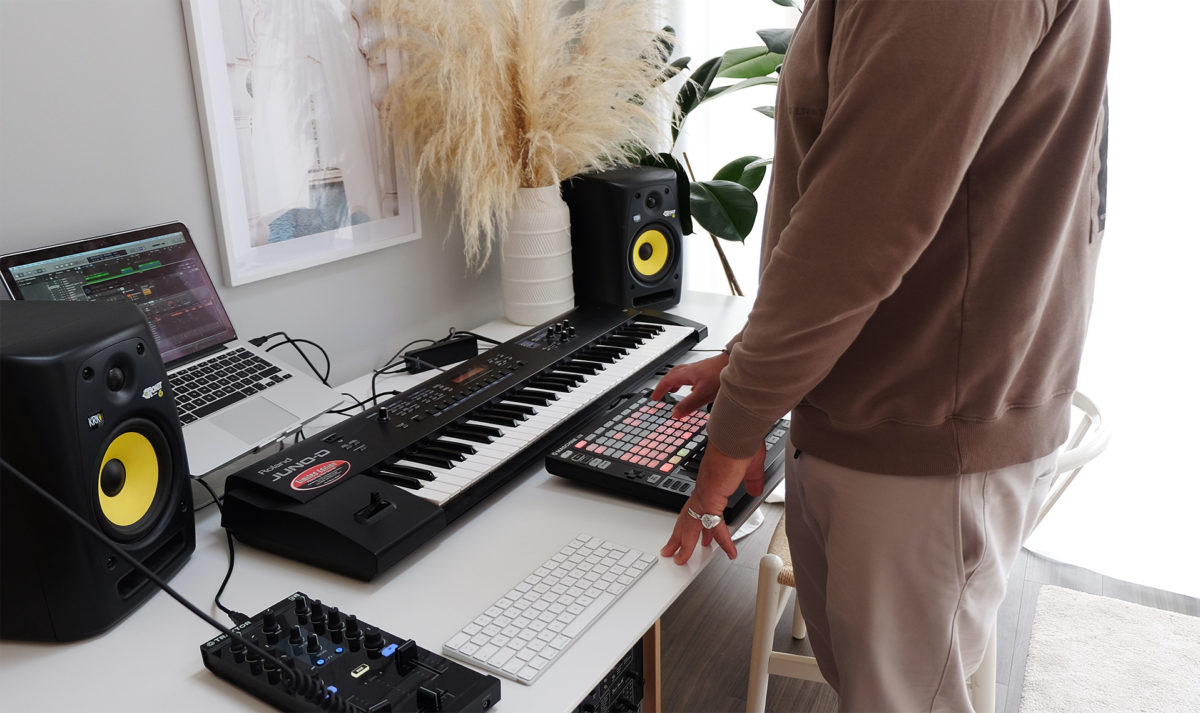
“His old computer that I used to use as a kid died years ago, and I remember he paid for this really expensive company to try and recover all the files on the hard drive. And they all came back but none of them had file names, so it was just a big muddle of files. And I managed to find some demos that he recorded – he recorded them to a computer from a tape years ago. And I really liked them.”
“Movin Up” is built around one of these demos, a rare groove-ish track given a treacle-slow edit.
On “Did We Say Goodbye”, meanwhile, snippets of guitar and down-pitched voice play over a muted house thud. For Mitchell, this is about making “connections to my dad musically, because I feel like a lot of what I possess musically comes from him.” But samples can be slippery, and in the case of the latter track, the meaning shifted over time.
“I made “Did We Say Goodbye” just before lockdown happened. And I guess being in this whole situation changes the meaning of the song. I had all of this footage from touring in the last couple of years that I filmed on my little handycam. And putting it together with that, it made perfect sense.” The resultant video for the track pairs Mitchell’s footage with club-going reminiscences from his Twitter followers. The title’s “goodbye” takes on another meaning.
In a sense, the whole album was inspired by the lockdowns of the past year. Seeing the free flow of music on Bandcamp days inspired Mitchell to be less precious about his output. “I don’t think I would’ve been brave enough to put all those sounds together and put them out a few years ago. The album’s quite varied, and it doesn’t have a singular message across it. It is kind of a full embodiment of me and the sounds that I’m into. I’ve definitely learnt in the last year to just do whatever I feel like doing.”
Lazy is out now – listen in full on your favorite streaming service or purchase via Mr Mitch’s BandCamp page.









